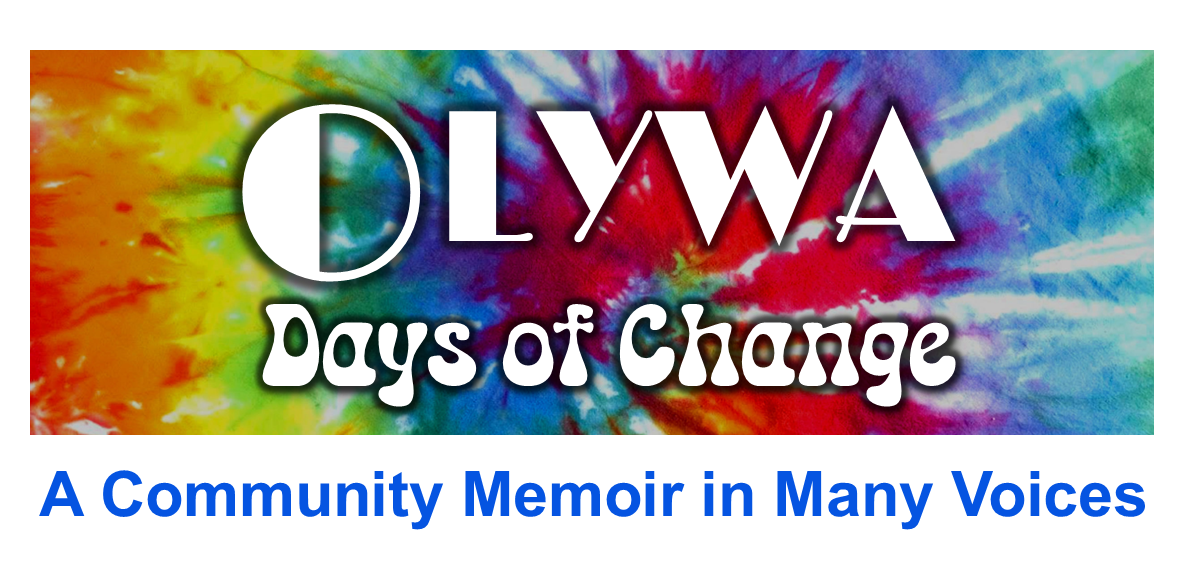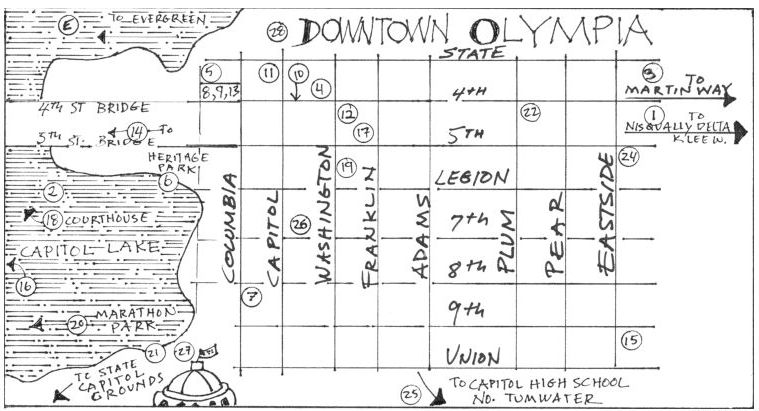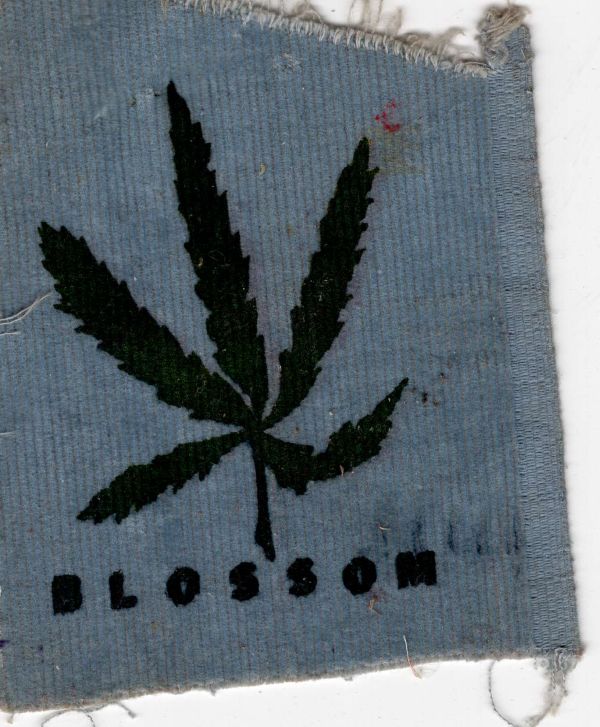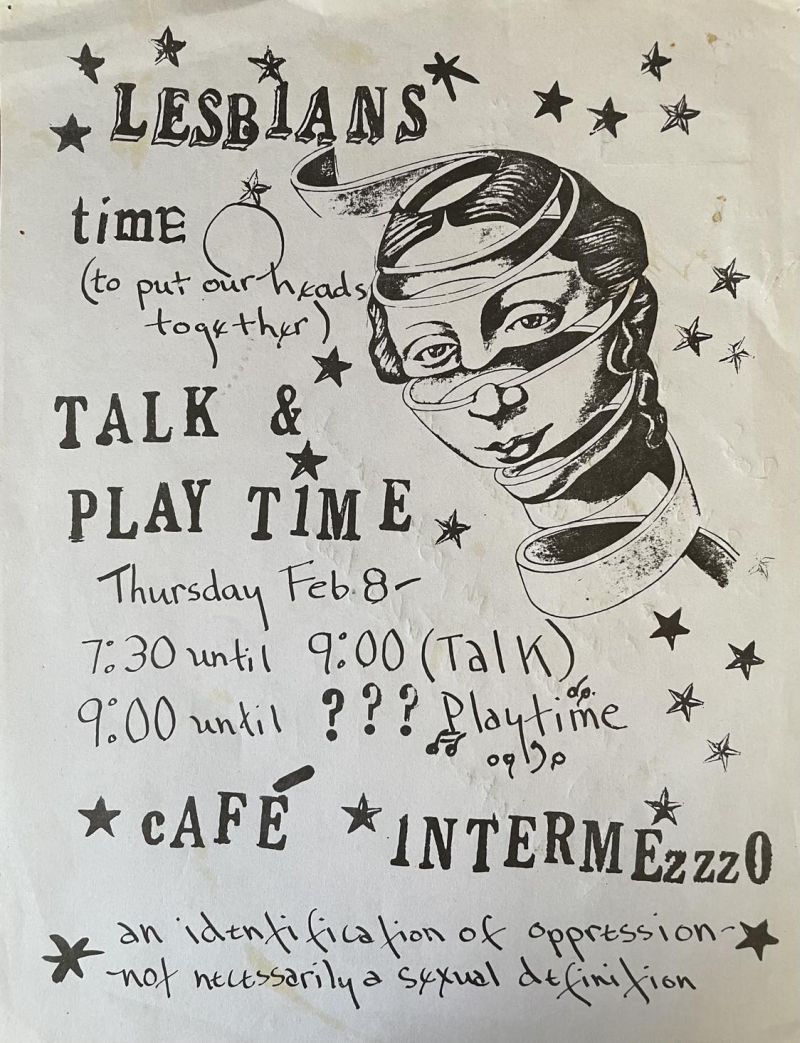Walking Tour and Gay History – By LLyn De Danaan and Carol McKinley
This list of historic highlights and walking tour map was conceived and produced by LLyn De Danaan and Carol McKinley. Many others contributed. It is offered in fond memory of and with thanks to some iconic folks who walked to the edge for us: Pat Shively, Kay Engel, Jocelyn Dohm, Ed Stanley, Cal Anderson, Mike Cook, Tom Howdeshell, and Marge Brown.



